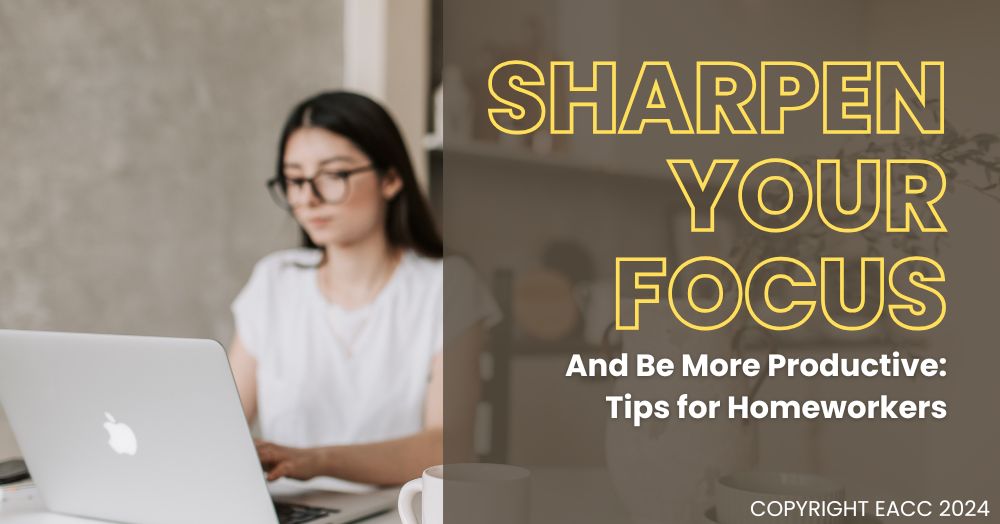Three Ways to Get More Done When You Work from Home

Working from home (WFH) is the norm for many Brits – 26% do it at least some of the time*.
But it’s easy to fall into a rut when your domestic and professional lives play out in the same location.
When this happens, simple tasks take longer to complete, and your mental health can suffer.
So, how can workers stay productive while still enjoying the benefits of WFH? Here are three tips.

- “It’s important to have a healthy, happy and productive space to work in.” – Oliver Heath, sustainable design expert – House Beautiful
Review your WFH space, making lighting and seating your priorities.
It’s best to work in a room with lots of natural light, so think carefully about where you position your desk.
Try a full-spectrum light bulb if your lighting isn’t up to scratch. These emulate natural lighting more closely than a standard bulb.
Also, ensure your work chair is comfortable and ergonomic (bad posture can lead to neck and back problems over time).
- “Success is having consistent work habits.” – Peter J. Daniels, entrepreneur and author
Establishing a straightforward work routine will help you power through your daily to-do list.
Start with a walk to get your blood and endorphins flowing, and then change out of your comfy clothes into something more business-like.
While many people joke about WFH in PJs or onesies, experts, such as careers author Annie Ridout, believe dressing like you mean business helps you focus on business.
Take regular breaks throughout the day, where you get up from your desk and walk around. Always take a proper lunch break, and do not slurp soup over your laptop.
Signal the end of the day by tidying your desk and packing away work equipment.
- “I find I am much more creative when I’ve taken care of myself.” – Arianna Huffington
Our work lives are heavily influenced by what we do in our leisure time, so don’t overlook the importance of exercise, sleep and diet.
Neuroscientist Wendy Suzuki says exercise is one of the best ways to boost memory, focus and decision-making. She says three to four 30-minute sessions per week are enough to deliver real benefits.
Aim to get about eight hours of sleep each night and carefully monitor how much tea, coffee and booze you consume.
Caffeine and alcohol can interfere with your sleep and leave you feeling sluggish the next day.
If you enjoyed reading this article, please feel free to share it.
Follow us for more ideas, insights and inspiration.
*Office for National Statistics
